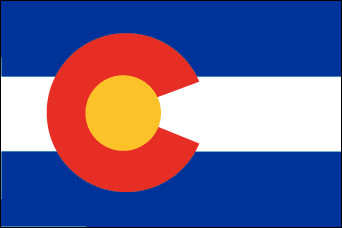
David Law
by David Law
On June 5, 2023, Colorado Governor Jared Polis signed SB 23-105 into law, significantly changing the rules around job postings and promotional notices. Employers will need to act quickly to prepare for these changes, which take effect January 1, 2024.
Overview of the Changes
Although multiple states have enacted pay transparency laws, Colorado has been the only state to require employers to notify existing employees of all “promotional opportunities” within their companies. SB 23-150 changes this requirement. Now, employers are required to provide notice of (and compensation and benefit information for) all “job opportunities” within their organizations, regardless of whether the opportunities would qualify as promotions, lateral transfers, or demotions for most existing employees. The Act clarifies that “career progression” and “career development” are not job opportunities and do not trigger the opportunity-notice requirements. The Act also provides some relief for employers with physical locations exclusively outside Colorado that have fewer than 15 Colorado-based employees working remotely. Through July 1, 2029, these employers will only be required to provide their Colorado employees notice of remote job opportunities.
To complement these changes to the existing notice provisions, the Act imposes a new (internal) notice requirement: employers must announce to existing employees each time they select a candidate for a job opportunity.
Notice Requirements for “Job Opportunities”
The law currently requires all Colorado employers to (1) include a pay range and general description of benefits for all jobs they choose to post externally, and (2) notify all existing Colorado employees of all “promotional opportunities” within Colorado on the same calendar day and prior to making a promotion decision and include pay range and benefit information in the notice.
The Act replaces “promotional opportunities” with “job opportunities,” extending the opportunity-notice requirements to all vacancies within the organization, excluding changes resulting from career progression or career development. “Career progression” is defined as “a regular or automatic movement from one position to another based on time in a specific role or other objective metrics.” This encompasses in-line promotions that typically occur after a period of time in one role. “Career development” is defined “a change to an employee’s compensation, benefits, full-time or part-time status, duties, or access to further advancement in order to update the employee’s job title or compensate the employee to reflect work performed or contributions already made by the employee.” In other words, an employer can change an employee’s pay and other terms and conditions of employment without that change constituting a promotion triggering the opportunity-notice requirements.
As a new requirement, employers must include in external postings and internal notices the date the application window is expected to close.
Internal Announcement of New Hires and Promotions
Employers will now be required to make reasonable efforts to announce the identity of the selected candidate for each job opportunity within 30 calendar days after the candidate’s start date in the new role. This notice must be provided to the employees with whom the selected candidate is intended to work, and must include
- The name of the selected candidate;
- The selected candidate’s former job title, if the selection was internal;
- The selected candidate’s new job title; and,
- Information on how employees may demonstrate interest in similar job opportunities in the future, including identifying individuals or departments to whom the employees can express interest in similar job opportunities.
Additionally, where a posted position has a defined “career progression” path, employers will have to disclose and make available to all eligible employees the requirements to move along that path, along with information about the position’s compensation, benefits, full- or part-time status, duties, and opportunities for further advancement.
Next Steps for Employers
Colorado employers should carefully review their policies and procedures for posting jobs internally to make sure they are complying with the new law. Employers should also consider which positions have defined career progression paths and decide how to communicate those paths to existing employees. Stay tuned for rulemaking from the Colorado Department of Labor and Employment, which should (hopefully) be forthcoming by the end of the year.

